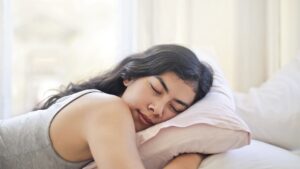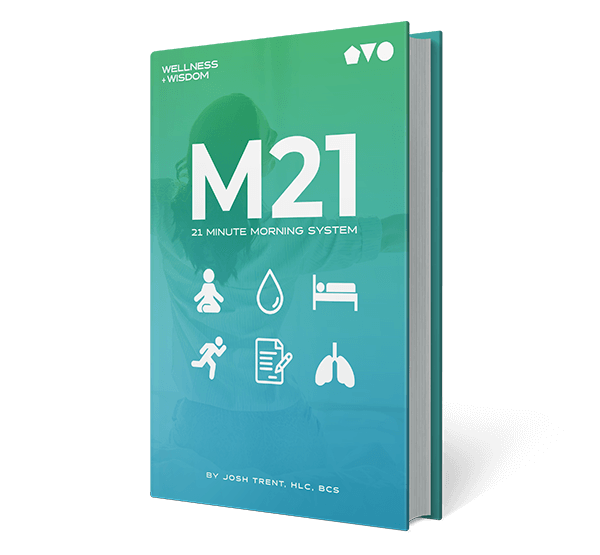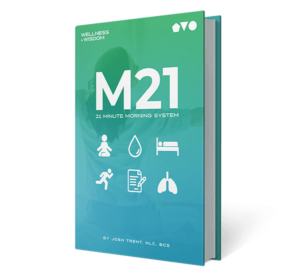 Self-advocacy is an empowering concept, especially for individuals navigating complex mental health or social care environments. It’s about effectively understanding and communicating your needs, rights, and desires to others. At its core, self-advocacy encourages individuals to control their lives, make informed decisions, and express their needs and goals.
Self-advocacy is an empowering concept, especially for individuals navigating complex mental health or social care environments. It’s about effectively understanding and communicating your needs, rights, and desires to others. At its core, self-advocacy encourages individuals to control their lives, make informed decisions, and express their needs and goals.
But what fuels this process? As surprising as it may sound, sleep, and more specifically, restorative sleep, plays a pivotal role.
Table of Contents
The Role of Sleep in Cognitive Function
Sleep, an often overlooked pillar of health, has far-reaching implications for our cognitive abilities, significantly influencing memory, concentration, decision-making, and emotional regulation. Scientific studies have long-established these connections.
A review in 2010 affirmed that sleep enhances memory consolidation, making it easier for individuals to recall information. Similarly, research published in the Journal of Sleep Research in 2018 found that inadequate sleep impaired cognitive flexibility and decision-making processes.
The Impact of Poor Sleep
On the flip side, poor sleep or sleep deprivation can severely hamper cognitive and emotional capabilities. Reduced communication skills, impaired decision-making, heightened emotional responses, and decreased alertness are common side effects.
A study found that lack of sleep led to increased sensitivity to negative emotional stimuli, hindering emotional regulation—a critical aspect of self-advocacy. In essence, without adequate sleep, the skills required to advocate effectively for oneself can become notably compromised.
Restorative Sleep and Self-Advocacy
Restorative sleep, characterized by adequate duration and quality, can significantly bolster self-advocacy. Benefits include improved mood, enhanced memory recall, and sharpened focus.
By ensuring that the brain undergoes its essential ‘maintenance' during sleep, individuals are better equipped to understand and communicate their needs effectively. Restorative sleep leads to clearer thinking, improved emotional balance, and increased resilience—all vital for those advocating for their mental health or social care needs.
Sleep Hygiene for Restorative Sleep: Helpful Tips
Sleep hygiene are activities and habits that are required for adequate nightly sleep and full daytime alertness. Here are some important considerations:
Establish a Regular Sleep Schedule: Consistency is key when it comes to sleep. Our bodies follow a natural 24-hour cycle known as the circadian rhythm, which dictates when we feel awake and when we feel sleepy. Going to bed and waking up at the same time on a regular basis helps to keep our circadian cycle in sync, making it simpler to fall asleep and wake up in the morning.
The sleep-wake schedule you establish should be realistic and take into account your daily commitments, ensuring that you can maintain it consistently, even on weekends and holidays. Erratic sleep schedules, with varying bedtimes and wake-up times, can disrupt your circadian rhythm and the quality of your sleep.
Craft a Conducive Sleep Environment: If necessary, use earplugs, an eye mask, or a white noise machine. Your mattress and pillows should be supportive and pleasant.
It’s also a good idea to invest in the right sleepwear, such as Lunya silk sleepwear. By eliminating discomforts like overheating or excessive sweating, Lunya sleepwear can contribute to a deeper, more restful sleep. In addition to getting better rest, the right sleepwear can also help take care of your skin.
 Limit Exposure to Screens Before Bed: The light emitted by phones, tablets, computers, and TVs can interfere with your body's production of melatonin, a hormone that regulates sleep. Try to turn off these devices at least an hour before bedtime.
Limit Exposure to Screens Before Bed: The light emitted by phones, tablets, computers, and TVs can interfere with your body's production of melatonin, a hormone that regulates sleep. Try to turn off these devices at least an hour before bedtime.
Be Mindful of Your Diet: Your nutritional intake plays a vital role in how well you sleep. Certain foods and beverages, if consumed at specific times, can be your allies in the quest for better sleep, while others may become obstacles in your path.
Consuming large meals close to your bedtime can put stress on your digestive system, potentially leading to discomfort, indigestion, or heartburn, any of which can disrupt your sleep. Thus, it's advisable to have your dinner several hours before you plan to sleep and try to keep this meal light and balanced.
Caffeine, found in coffee, certain teas, chocolate, many soft drinks, and some medications, is a notorious stimulant that can disrupt your sleep. It can remain in your system for several hours and interfere with your ability to fall asleep. Therefore, it's better to limit your caffeine intake and avoid consuming such items in the late afternoon or evening.
Regular Exercise: Getting enough physical activity throughout the day can help you fall asleep faster and enjoy deeper sleep. However, timing is important. If done too close to bedtime, exercise might make you too energized to fall asleep.
Implement a Relaxing Pre-Sleep Routine: Engaging in a calming activity before bed, away from bright lights, can help make the transition to sleep. This could include activities like reading a book, taking a warm bath, listening to soothing music, or practicing relaxation exercises.
Avoid Long Daytime Naps: While short power naps can be beneficial, long or irregular napping during the day can disrupt your sleep. If you have trouble sleeping at night, try to limit your daytime naps or keep them to early afternoon.
Manage Worries: Anxiety and stress can interfere with sleep. Try to resolve your concerns or worries before bedtime. Consider techniques like meditation, deep breathing, or progressive muscle relaxation to help you relax and manage stress.
Harnessing the Power of Restorative Sleep
Understanding the intricacies of the sleep-self advocacy connection underscores the compelling need to prioritize our sleep. By embracing good sleep hygiene practices, we can cultivate restorative sleep, empowering ourselves with enhanced cognitive and emotional capabilities. Whether it's establishing a regular sleep schedule, mindfully adjusting our diet, or choosing comfortable sleepwear, each decision can contribute to improving sleep quality.
In doing so, we enhance our ability to articulate our needs, make informed decisions, and effectively advocate for ourselves. As we traverse the journey of self-advocacy, let us remember to harness the transformative power of restorative sleep, a silent but potent ally in achieving our goals.
So, as the night draws in, let's redefine it as a time of restoration and empowerment, setting the stage for success when the new day dawns.









